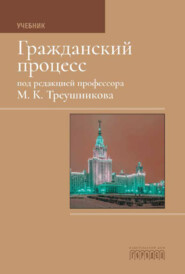По всем вопросам обращайтесь на: info@litportal.ru
(©) 2003-2024.
✖
International Short Stories: French
Настройки чтения
Размер шрифта
Высота строк
Поля
"Is that all, Karl?"
"No. There will be two soldiers detailed especially for my benefit, so that I can't get away to give the alarm."
"Well, is that all!"
"No. The carriage is to convey your honor to Lavenburg, in Pomerania, and you must cross a portion of the province of Danzig to get there. Besides the under officers at the inn who will travel with your honor, two others will accompany the carriage on horseback to prevent any outcry while you are on neutral ground."
"Famously planned!"
"M. Reimer, the Prussian resident here, outlined the plot, and appointed Lieutenant Henry to carry it out."
"Afterward, Karl?"
"That's all – this time – and it's enough!"
"Yes, but I regret that it should end thus, for your account has greatly interested me."
"Your honor may take it that all I have said is absolutely correct."
"But when did you obtain this information?"
"Oh, just now!"
"And from whom?"
"Franz, Lieutenant Henry's valet, when we were watching the horses beneath the big pines, while your honors waited in that roadside pavilion for the shower to pass over."
"Is his information reliable?"
"Of course! As no one suspected him, the whole matter was discussed freely before him."
"And he betrayed the secret?"
"Yes, because he greatly admires your honor and wasn't willing to see you treated so."
"Karl, give him ten ducats from my purse and tell him I will take him in my own service, for he has afforded me great pleasure. The outing to-morrow will be a hundred times more amusing than I had hoped – indeed more amusing than any I have ever undertaken in my life."
"Your honor will go to Langführ, then!"
"Certainly, Karl. We will go together, and you shall see if I misled you when I promised you a delightful morning."
As soon as Baron de Trenck had completed his toilet, he visited M. Scherer, the Russian resident, spent a few moments in private with him and then returned to his apartments for dinner.
Lieutenant Henry arrived soon afterward. Trenck found delight in the course of dissimulation to which he stood committed. He overwhelmed his guest with courteous attentions, pressing upon him the finest wines and his favorite fruits, meanwhile beaming upon him with an affection that overspread his whole countenance, and expatiating freely upon the delights of the morrow's ride.
Henry accepted his attentions with his accustomed dreamy manner.
The next morning, at half past nine, when the lieutenant arrived, he found Trenck awaiting him.
The two officers rode off, followed by their servants, and took the road to Langführ. Trenck's audacity was terrifying. Even Karl, who was well aware of his master's great ability and cleverness, was nevertheless uneasy, and Franz, who was less familiar with the baron's character, was in a state of the greatest alarm.
The country, beautiful with its verdant grasslands, its budding bushes and flowers, its rich fields of wheat, dotted with spring blossoms, revealed itself to their delighted eyes. In the distance glistened the tavern of Langführ, with its broad red and blue stripes and its tempting signboard that displayed a well-appointed festive table.
The low door in the wall that enclosed the tavern courtyard was still closed. Inside, to the right of that door, was a little terrace, and against the wall was an arbor formed of running vines and ivy.
Lieutenant Henry, pausing near a clump of trees some two hundred paces from the tavern, said:
"Baron, our horses will be in the way in that little courtyard. I think it would be well to leave them here in the care of our servants until our return."
Trenck assented readily. He sprang from his horse and tossed his bridle to his valet and Henry did the same.
The path leading to the tavern was enchanting, with its carpet of flowers and moss, and the two young men advanced arm in arm in the most affectionate manner. Karl and Franz watched them, overwhelmed with anxiety.
The door in the wall had been partly opened as they approached and the young men saw, within the arbor on the terrace, the resident, Herr Reimer – his three-cornered hat on his powdered wig, his arms crossed on the top of the adjacent wall, as he awaited their coming.
As soon as the officers were within ear-shot, he called out:
"Come on, Baron de Trenck, breakfast is ready."
The two officers were almost at the threshold. Trenck slackened his pace somewhat; then he felt Henry grip his arm more closely and forcibly drag him toward the doorway.
Trenck energetically freed his arm, upon observing this movement that spoke so eloquently of betrayal, and twice struck the lieutenant, with such violence that Henry was thrown to the ground.
Reimer, the resident, realizing that Trenck knew of the plot, saw that the time had come to resort to armed intervention.
"Soldiers, in the name of Prussia, I command you to arrest Baron de Trenck!" he shouted to the men who were posted in the courtyard.
"Soldiers, in the name of Russia!" Trenck shouted, brandishing his sword, "kill these brigands who are violating the rights of the country."
At these words, six Russian dragoons emerged suddenly from a field of wheat and, running up, fell upon the Prussians who had rushed from the courtyard at the resident's command.
This unexpected attack took the Prussians by surprise. They defended themselves only half-heartedly and finally they fled in disorder, throwing away their weapons, and followed by the shots of the Russians.
Lieutenant Henry and four soldiers remained in the custody of the victors. Trenck dashed into the arbor to seize Resident Reimer, but the only evidence of that personage was his wig, which remained caught in the foliage at an opening in the rear of the arbor through which the resident had made his escape. Trenck then returned to the prisoners.
As a fitting punishment for the Prussian soldiers, he commanded his dragoons to give each of them fifty blows, to turn their uniforms wrongside out, to decorate their helmets with straw cockades, and to drive them thus attired across the frontier.
While his men proceeded to execute his orders, Trenck drew his sword and turned to Lieutenant Henry.
"And now, for our affair, lieutenant!" he exclaimed.
The unfortunate Henry, under the disgrace of his position, lost his presence of mind. Hardly knowing what he did, he drew his sword, but dropped it almost immediately, begging for mercy.
Trenck endeavored to force him to fight, without avail, then, disgusted with the lieutenant's cowardice, he caught up a stick and belabored him heartily, crying:
"Rogue, go tell your fellows how Trenck deals with traitors!"
The people of the inn, attracted by the noise of the conflict, had gathered around the spot, and, as the baron administered the punishment, they added to the shame of the disgraced lieutenant by applauding the baron heartily.

















